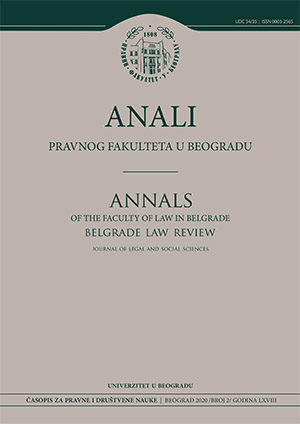NEPOSREDNO ZASTUPANJE U RIMSKOM PRAVU S OSVRTOM NA MODERNO PRAVO
DIRECT REPRESENTATION IN ROMAN LAW WITH REFERENCE TO MODERN LAW
Author(s): Valentina Cvetković-ĐorđevićSubject(s): History of Law, Civil Law
Published by: Правни факултет Универзитета у Београду
Keywords: Direct representation; Roman law; Power of attorney; Mandate contract; Laband;
Summary/Abstract: The institute of direct representation is indispensable in contemporary law. The first modern civil codes acknowledged direct representation regulating power of attorney through a mandate contract. The second half of the 19th century saw a change in that perception. Starting with the German Civil Code, legal texts, including the Serbian Contract and Torts Act, prescribe power of attorney as a separate institute. The contemporary law principle of direct representation contrasts with the Roman law prohibition of direct representation contained in ancient Roman sources. Under the prevailing Pandectist view, it is due to this prohibition that Roman law did not permit direct representation. The article analyses the cases in which, courtesy of classical Roman jurists, direct representation was allowed despite formal prohibition. The absence of a direct representation concept definition and general prescribing does not justify the claim that it was not applied under Roman law.
Journal: Анали Правног факултета у Београду
- Issue Year: 68/2020
- Issue No: 2
- Page Range: 124-144
- Page Count: 21
- Language: Serbian

